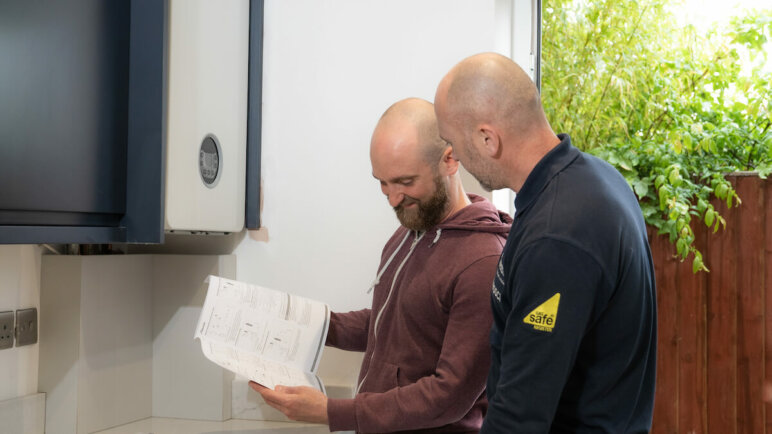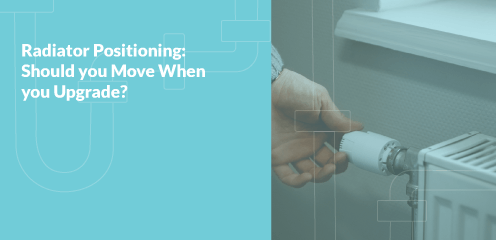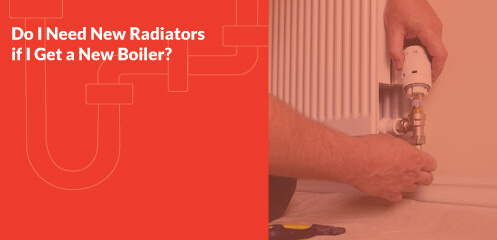Understanding Boiler Pressure: The Complete Guide
Our complete guide runs through everything you need to know about boiler pressure. We can provide clear instructions for diagnosing and fixing low or high boiler pressure, or alternatively, our heating engineers are ready to help you should you require our assistance.
What is boiler pressure?
Boiler pressure, measured by a pressure gauge inside or underneath a boiler, maintains effective water flow around the home and ensures that hot water can flow through the entire heating system.
Your heating system may not work correctly if you are experiencing boiler pressure issues. Too low and hot water may not reach all areas of the heating system. Too high and the system may fail due to overload.
Many of these problems can be diagnosed and fixed with relative ease, but sometimes an engineer is required.
Pro Tips:
Why is boiler pressure important?
Your heating system is pressurised and relies on pressure stability to move water around your home efficiently.
Your boiler heats cold water and pumps this through the pipework in your home. It is important that the right pressure level is maintained in order for your heating system to compensate for pipes expanding and contracting as water heats and cools.
How do I check my boiler pressure?
So, you’ve read and understood how important boiler pressure is for your heating system, particularly in those bitter winter months! Now it’s time to diagnose the issue at hand.
Modern, popular combi boilers will have a built-in pressure gauge for easy reading. Your boiler pressure will more than likely be displayed on one of the following:
- A dial
- A hydraulic pressure gauge
- A digital display
One of these modes of measurement should simply display your boiler pressure and alert you if any problems are present.
Boiler pressure will naturally fluctuate as the heating is used and water subsequently heats and cools. The pressure should stabilise itself once the system is switched off, so don’t worry if you see changes like these occurring.
What pressure should my boiler be?
Normal boiler pressure should be around 1.5 bars as standard.Your pressure gauge should indicate when there is an issue. This is usually shown by:
A needle on a dial pointing to a red, amber or green zone.
A digital gauge displaying an error message, code or symbol.
Low boiler pressure
You may be able to fix low boiler pressure yourself. Firstly, run through these 2 initial steps:
Signs and common causes of low boiler pressure
Your boiler pressure is likely to be too low if:
Common causes of low boiler pressure include:
How to increase boiler pressure
Great news! It’s likely that you can increase your boiler pressure yourself in just a few simple steps.
*Tip: Increasing boiler pressure is sometimes referred to as ‘re-pressurising your boiler’.
If your boiler pressure is low, follow these steps:
You shouldn’t have to worry about increasing your boiler pressure all that often. If your pressure drops more than twice a year, consider thoroughly checking for leaks.
If you do find a leak, or continue experiencing low pressure, book an engineer visit as soon as possible.
Get a FREE Boiler Quote Today
Is low boiler pressure dangerous?
No, low boiler pressure isn’t dangerous.
Low boiler pressure may indicate a leak, which on a large scale may be damaging, but these leaks are far more likely to be minor and can be easily repaired. Just be careful of water leaking near any wires or electrical connections.
High boiler pressure
High boiler pressure is a slightly more difficult issue to fix on your own, though through some research on our blog beforehand, you may be able to repair it yourself. Run through the 2 initial steps again first:
Check the pressure gauge to be certain that your boiler pressure is high
Consult your boiler manufacturer manual if you have it
Signs of high boiler pressure
Your boiler pressure is likely to be too high if:
Common causes of high boiler pressure
How to reduce boiler pressure

Our boiler pressure checklist
FAQs
Boiler pressure relief valve is leaking
This will likely be due to your boiler pressure being too high and your relief valve is overloaded. It will be compensating for the increased pressure by attempting to release excess water and pressure.
If you successfully bring your boiler pressure back to a normal level, your relief valve may stop leaking. If it continues to leak, call a heating engineer. You may need a new valve all together. Even so, your best option here is to contact a plumber who can diagnose and fix the issue with ease.
Will a boiler work without pressure?
Your boiler and heating system will struggle to work properly without pressure. The water will not flow through the pipework effectively and you won’t be able to heat water up enough to become hot.
This may also end up costing you a lot in heating bills. If you’re in any doubt about your boiler pressure, get an expert to come out and help you. It’s far better than being out of pocket and left in the cold.
Do boilers lose pressure over time?
Yes, your boiler will lose pressure over time. This is a natural occurrence and it is extremely likely that you will have to repressurise your boiler at some point in your lifetime (or get someone else to do it!).
You shouldn’t experience significant and consistent low pressure more than twice a year. If this is the case, book a boiler service to help diagnose the issue. There are huge benefits to being on a boiler service plan too - this will allow you peace of mind when it comes to boiler issues, knowing that we’ll keep your boiler and heating system well maintained and working efficiently.
More like this

Radiator Positioning: Should you Move When you Upgrade?

Do I Need New Radiators if I Get a New Boiler?
Find Us On
Unit 11 Eton Business Park
Eton Hill Road, Radcliffe, M26 2ZS
Opening Times
Mon – Fri 8am – 5pm
Call Us Today
0161 884 1109
GET IN TOUCH

